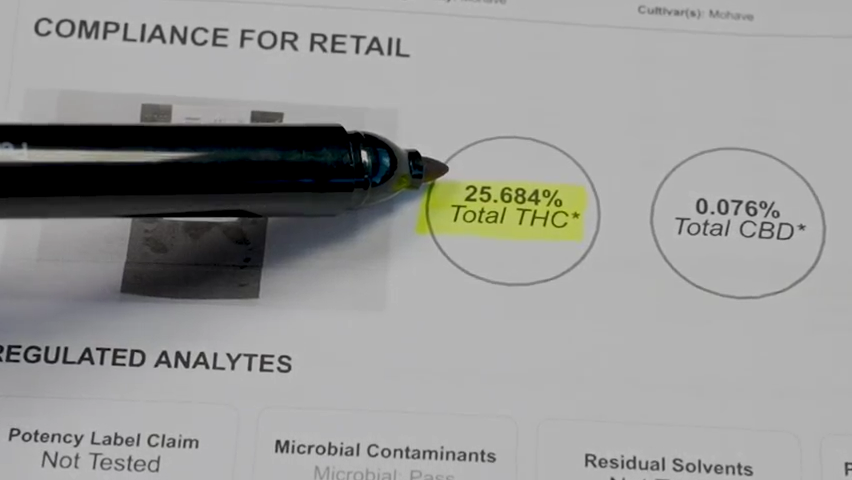
Marijuana in Arizona: How THC levels are tested
Arizona marijuana testing labs inflated the potency of products. Reporter Ryan Randazzo explains the investigation and how marijuana potency is tested.
Mark Henle, The Republic
A federal jury convicted a Scottsdale man on one count of wire fraud related to his claims to a financial backer that he would invest their $100,000 in the cannabis industry.
Instead, Christopher E. Galvin spent the money on “legal bills, payroll, and himself, including cleaning, utility, air condition repair, and credit card bills,” according to a pre-trial memorandum filed by federal prosecutors working the case.
The federal jury unanimously found Galvin, 58, guilty of the count on March 13 after a three-day trial overseen by U.S. District Judge Susan Brnovich. Just before the trial, prosecutors dropped four counts of transactional money laundering.
In 2019, Galvin founded a company called Hypur Ventures II, according to the U.S. Attorney’s Office in Arizona. He then convinced the woman in the case to wire him $100,000 for investment in cannabis industry funds. After Galvin spent the money on other things, he never repaid the investor, though he repeatedly promised the victim he would, prosecutors said.
Galvin repeatedly told the woman he could not tell her how her investment was performing, evidence of “his intent to defraud and cheat her out of her money to use it how he wished,” the prosecutors’ memo reads.
But Galvin’s attorney intended to make the case that using the money for business purposes was allowed by disclosures Hyper Ventures II provided to the investor, who because of previous investments knew the risks of putting money into cannabis businesses, court records showed. Those disclosures led prosecutors to dismiss the other four charges, according to a trial outline filed by the defense.
Esther Winne, a spokesperson for the U.S. Attorney’s Office, said the counts being dismissed “had nothing to do with any disclosures made to investors,” though she did not provide further information about the prosecutors’ decision.
Galvin is scheduled for sentencing on May 30. He faces an up to 20-year sentence, according to Winne.
The U.S. Securities and Exchange Commission is also pursuing Galvin, alleging he falsely claimed to two investors he would invest their $500,000 into cannabis companies. One of those investors is the woman in the criminal case, court records show.
The SEC matter has been paused as the criminal case moved along, the court records showed.
Reach reporter Stacey Barchenger at [email protected] or 480-416-5669.
(This story has been updated to add new information.)















